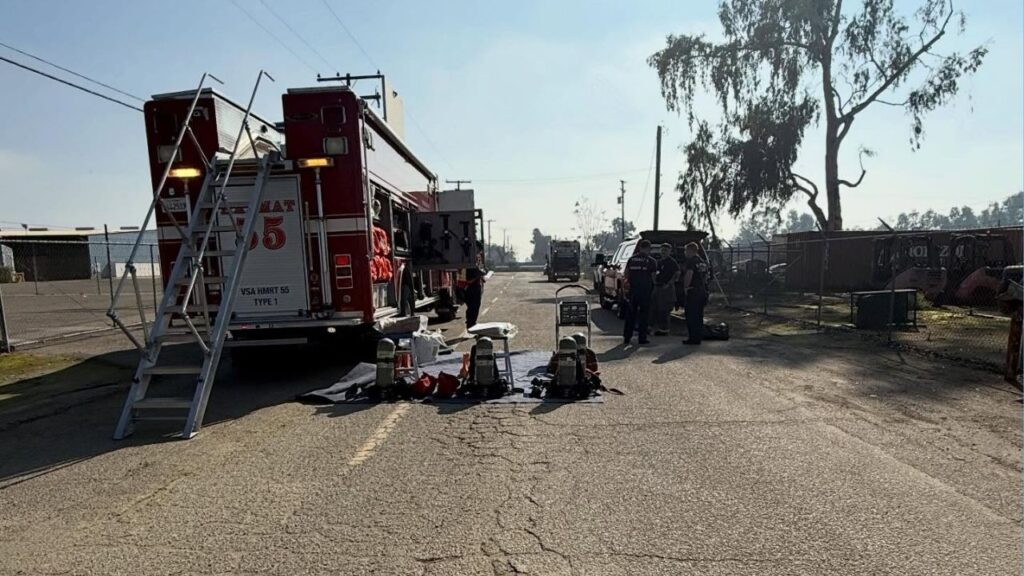The move to restrict new oil and gas leasing in Alaska's petroleum reserve is meant to protect wildlife and combat climate change. (AP/David W. Houseknecht)

- Biden’s administration limits new oil, gas leasing in Alaska's federal petroleum reserve amid a state oil resource development dispute.
- Republican lawmakers, led by Alaska Sen. Dan Sullivan, have criticized the decision.
- The decision does not change the terms of existing leases in the reserve.
Share
|
Getting your Trinity Audio player ready...
|
JUNEAU, Alaska — The Biden administration said Friday it will restrict new oil and gas leasing on 13 million acres (5.3 million hectares) of a federal petroleum reserve in Alaska to help protect wildlife such as caribou and polar bears as the Arctic continues to warm.
Controversy Over Oil Resources
The decision — part of a yearslong fight over whether and how to develop the vast oil resources in the state — finalizes protections first proposed last year as the Democratic administration prepared to approve the contentious Willow oil project.
The approval of Willow drew fury from environmentalists, who said the large oil project violated President Joe Biden’s pledge to combat climate change. Friday’s decision also completes an earlier plan that called for closing nearly half the reserve to oil and gas leasing.
A group of Republican lawmakers, led by Alaska U.S. Sen. Dan Sullivan, jumped out ahead of Friday’s announcement about drilling limitations in the National Petroleum-Reserve Alaska before it was publicly announced. Sullivan called it an “illegal” attack on the state’s economic lifeblood, and he predicted lawsuits.
“It’s more than a one-two punch to Alaska,” the state’s Republican Sen. Lisa Murkowski said, “because when you take off access to our resources, when you say you cannot drill, you cannot produce, you cannot explore, you cannot move it — this is the energy insecurity that we’re talking about.”
Existing Leases and Operations
The decision by the Interior Department doesn’t change the terms of existing leases in the reserve or affect currently authorized operations, including Willow.
In an olive branch to environmentalists, the Biden administration also Friday recommended the rejection of a state corporation’s application related to a proposed 210-mile (338-kilometer) road in the northwest part of the state to allow mining of critical mineral deposits, including including copper, cobalt, zinc, silver and gold. There are no mining proposals or current mines in the area, however, and the proposed funding model for the Ambler Road project is speculative, the Interior Department said in a statement.
Related Story: Biden Pledges to Block Japanese Takeover of US Steel and Promises Tariffs on ...
Environmental Impact
The petroleum reserve, about 100 miles (161 kilometers) west of the Arctic National Wildlife Refuge, is home to caribou and polar bears and provides habitat for millions of migrating birds. It was set aside around a century ago as an emergency oil source for the U.S. Navy, but since the 1970s it has been overseen by the Interior Department. There has been ongoing, longstanding debate over where oil and gas development should occur.
Most existing leases in the petroleum reserve are clustered in an area that’s considered to have high development potential, according to the U.S. Bureau of Land Management, which falls under the Interior Department. The development potential in other parts of the reserve is lower, the agency said.
The rules announced Friday would place restrictions on future leasing and industrial development in areas designated as special for their wildlife, subsistence or other values and call for the agency to evaluate regularly whether to designate new special areas or bolster protections in those areas. The agency cited as a rationale the rapidly changing conditions in the Arctic due to climate change, including melting permafrost and changes in plant life and wildlife corridors.
Reactions from Environmentalists
Environmentalists were elated.
“The Biden administration’s actions for America’s Arctic shows a commitment to conservation that meets the needs of the region’s outsized vastness and ecological value,” said Kristen Miller, executive director at Alaska Wilderness League. “Our nation’s public lands are an essential part of addressing the climate and biodiversity crisis, and this decision could not come at a more critical time.”
And Ellen Montgomery, a director at the Environment America Research & Policy Center, said, “This huge, wild place will be able to remain wild.”
Jeremy Lieb, an attorney with Earthjustice, said the administration had taken an important step to protect the climate with the latest decision. Earthjustice is involved in litigation currently before a federal appeals court that seeks to overturn Willow’s approval.
A decision in that case is pending.
RELATED TOPICS:
Categories


















